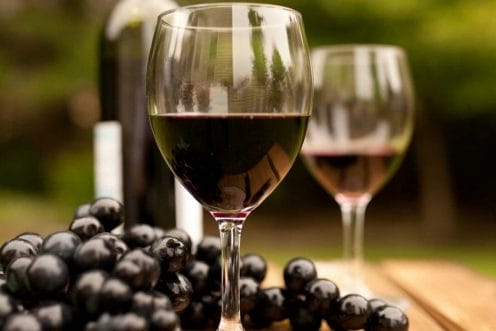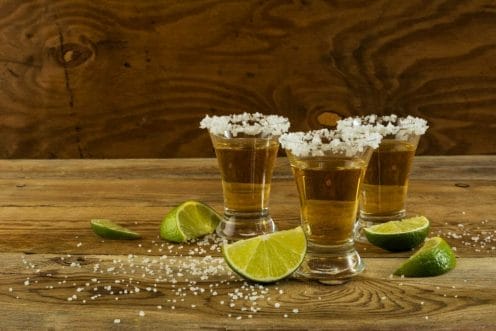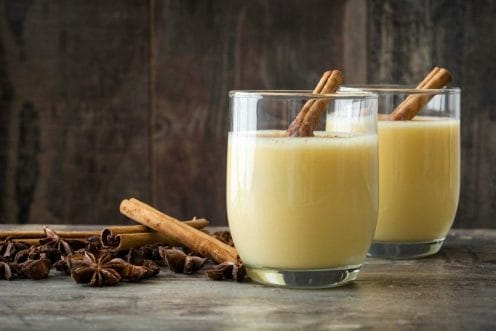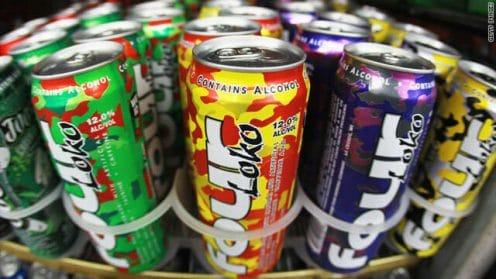Can You Drink Alcohol on a Renal Diet
One of the most damaging habits a person could develop is alcohol addiction.
Don't get us wrong, alcohol is not all bad. Studies have indicated that alcohol can actually help prevent heart diseases when drank in small amounts.

However, as a general rule for your health (and even in life), you need to take everything in moderation. So, it's time to learn a few facts about alcohol and how it fits (or doesn't fit) in your renal diet.
Renal Diet and Alcohol
A healthy adult can consume alcohol without worrying about long-term effects, provided they follow the guideline amounts:
- For men: 3 units a day, less than 13 per week
- For women: 2 units a day, less than 6 per week

But for patients with renal impairment, especially people who are already on dialysis and/or taking medication, certain measures need to be taken, information to be shared.
First off, alcohol has been found to cause damage to kidney cells. This is why it isn't advisable for kidney patients to consume alcoholic beverages. The extra calories that you get from it can also increase your weight.
Renal patients can still drink alcohol, with recommendations from your doctor or dietitian. But as a general guideline, renal patients can only drink a maximum of 2 units a day for men, and 1 unit a day for women. You must also keep in mind that alcoholic drinks can add to your daily fluid intake.
Now, which beverages are actually considered alcoholic?
What Brings "the Buzz"
These are the common types of alcoholic drinks that you may have come across:
1. Beer
This drink is produced by fermenting cereal grains, particularly barley.

In a process calledbrewing, the starch from grains are converted into sugars calledmalt, then fermented with brewer's yeasts to convert them into alcohol and carbon dioxide. Finally,hops is added as a preservative and flavor-enhancer.
There are different types of beer, but the two main distinctions areale andlager.
Alcoholic content: can range from 2.5 - 15% abv (percent of alcohol by volume)
2. Wine
While beer is produced by fermenting grains, wine is created by fermenting grapes.
After crushing them, they are left to ferment with brewer's yeast for at least a week. Then they are pressed, and the liquid parts are separated from the solids. They are then stored and aged for years before being bottled; the longer the aging process, the better the wine tastes.

There are a lot of different types of wine, but few of the most common are red, white, rose, sparkling, fortified, and cooking wine.
Alcoholic content: 8.5 - 15% abv (for table / light wine, it doesn't exceed 14% abv)
3. Cider
This beverage comes usually from apples. It can be dry or sweet, and still or sparkling. There are two types:
- Non-alcoholic / soft cider – unfiltered, raw apple juice
- Alcoholic / hard cider – fermented apple juice
Alcoholic content:1. 2 - 13% abv (in the case of apple wine, its alcohol content is 10-13% abv)
4. Spirits / Distilled Beverages

The difference of spirits (also known as liquors) from fermented beverages is the addition of the distillation process, where the solid parts and some of the water contents are removed from the mixture. This results to a higher alcoholic content.
Some common examples are: brandy, gin, mezcal, moonshine (firewater), rum, tequila, vodka, and whiskey.
Alcoholic content: 20 - 95% abv
5. Cordials / Liqueurs

These are also distilled spirits, but with added sugars and other flavor-enhancers (at least 10 - 21.5%, depending on the country). Some common examples are American schnapps, Jägermeister, cream liqueur, and egg liqueur.
Alcoholic content: 11 - 55% abv
6. Alcopops
These are mixtures of alcoholic and other non-alcoholic beverages, resembling soft drinks. Examples include clear malts, wine coolers, fruit punch, and gin and tonic.
Alcoholic content: 4 - 7% abv
7. Caffeinated Alcoholic Beverages (CABs)
Also called alcoholic energy drinks (AEDs), they also contain sugars, caffeine, and other stimulants, along with the alcohol.

Image_source:_ http://edition.cnn.com/2010/HEALTH/11/17/alcohol.caffeine.drinks/t1larg.four.loko.jpg
But apparently, the US Food and Drug Administration (FDA) has deemed them unsafe due to cases linked to alcohol poisoning, drunk driving, and violence, among other things. Caffeine can also hide the effects of alcohol, which could lead to the overconsumption of it.
Alcoholic content: 5 - 12% abv
Now that you know which drinks are alcoholic, you might be wondering: how exactly does alcohol "damage" the kidneys?
Alcohol and the Kidneys
According to the National Kidney Foundation, part of the changes that alcohol can cause in the body is the increase in blood pressure.

The kidneys, being in charge of regulating pressure in the blood vessels, struggle with control when alcohol is present in the body. Heavy drinkers tend to have high blood pressure, which is the common cause of kidney disease.
The kidneys also regulate the right amount of fluids in your body. But this can be hard to do when alcohol dehydrates your system. The presence of alcohol has a "drying effect" on the tissues and organs in your body, destabilizing fluid balance and adding to your kidneys' workload.
Excess amounts of alcohol also cause liver disease, which also adds strain to your kidneys. It has even been reported that most patients in the US who suffer liver disease and kidney dysfunction are found to be dependent in alcohol. This is because liver disease ruins the rate of blood flow from your liver to the kidneys, causing inefficient filtering of waste.
As a renal patient, you can still have a drink or two, provided you always keep in mind your daily fluid limits and your kidney condition.
And as always, do not forget to check with your doctor or healthcare provider and discuss with him/her the merits and dangers of including alcohol in your renal diet.
Sources:
Can You Drink Alcohol on a Renal Diet
Source: https://blog.renaltracker.com/healthy-kidney-diet/renal-diet-and-alcohol/